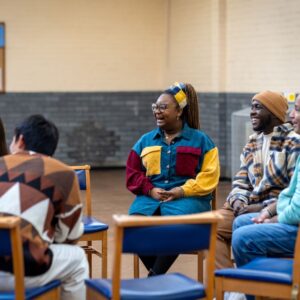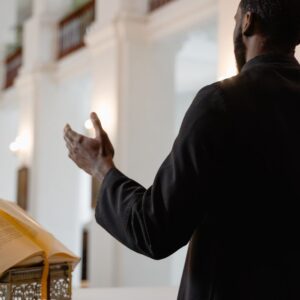Hi! We’re the Center for Transforming Engagement.
If you are spending time here with us, it’s likely you are a person who imagines a world that is more hopeful and whole–and that you’ve dedicated your work to making that a reality. You know it’s not easy, that obstacles to change are real and that you need support and resources to grow the capacity you need to sustain your work.
Maybe you are a pastor, a non-profit leader, a congregant, or a community leader. Whatever your role as changemaker is, we want to welcome you! We are glad to have you as part of our community.
Can we tell you a little more about us?
Our Big Hope
We are here to support you and your team as you make the world a better place. Through training, workshops, resources and coaching, we use the tools of the social sciences to build the capacity of organizations and individuals to embody the Christian values of faith, hope and love.
Our staff is made up of boots-on-the-ground practitioners who’ve faced discouragement and disillusionment working within traditional ministry settings. Yet we are unwilling to let that be the end of our story. Hope is the thread that runs throughout the Center for Transforming Engagement.
Here’s our big hope: A transformed society where folks aren’t afraid of their neighbor, where people are primarily viewed as worthy of care, and where creation is seen as God’s very good gift to humanity to be stewarded.
This transformation happens as we change how we engage one another–learning reciprocal sharing of needs, hopes, purpose, and care. Changing the way we engage others has a snowball effect: our teams, the systems we work in and the communities we care about are transformed too!
Bottom line, we envision a future where more good leaders + higher capacity organizations = a more flourishing society.
The Basics of Transforming Engagements
Transforming engagement is about identifying and changing how we show up and participate in deeper and more meaningful ways for ourselves, friends, family, colleagues and for our communities. This is what we are all about at the Center, where we focus on equipping individuals and teams to (re)build communities marked by resilience, belonging, and generativity. We have identified these three areas as effective markers for personal and collective transformation.
Resilience
Resilience is the ability to grow in the midst of hardship. You already have some resilience–and you can also intentionally grow your resilience in ways that increase your capacity to handle stress and conflict. It’s like a muscle; you can build it through practice.
We’ve developed a model of resilience called the 3-Ps: People, Practices, and Purpose. You need to attend to all three of these areas of your life in order to thrive. “People” refers to the need to develop mutually supportive relationships, to learn self-awareness so you can be vulnerable with those who love you and authentic with those you serve. “Practices” means learning to do the things that help you cope effectively with stress and to practice self-compassion when you don’t. “Purpose” is an invitation to root your work in your story and the redemptive story of God.
Belonging
Information alone rarely leads to lasting transformation. Lasting transformation also requires relationships, a sense of belonging to a supportive community that allows you to reflect, respond, and practice new approaches. Belonging requires creating safe-enough spaces for people to ask questions of themselves and others.
One distinctive of how we create belonging is the leadership style we use. Our facilitators use proven tools and have done lots of work on their own healing–but we approach you not just as experts but also as learners practicing side-by-side with you. Past participants have noted that experiencing our model of leadership has sparked their own ability to lead more authentically. Another distinctive is how much we attend to group dynamics and roles when we work with teams. We remind teams that to create belonging, you have to attend not only to the task you share but also to the relationships between you.
Generativity
Generativity is the concern for, and commitment to the well-being of future generations. It also connotes growth, renewal, and care for others beyond ourselves.
One powerful image of generativity is Jesus’s parable of the mustard seed.
The kingdom of heaven is like a mustard seed, which a man took and planted in his field. Though it is the smallest of all seeds, yet when it grows, it is the largest of garden plants and becomes a tree, so that the birds come and perch in its branches. Matthew 17:31-32 (NIV)
Our individual efforts may feel small at times, but together we have the ability to create communities marked by resilience and belonging, places of renewal like the tree in the parable.
The obstacles to generativity are real: culture is shifting; individualism and loneliness are the norm; and traditional ministry often misses the mark. But the opportunity is equally real. The ways of Jesus are winsome, and the gospel carries a much needed message of hope and love. This means we need to reimagine ministry within our complex, modern context.
Our programs at the Center for Transforming Engagement are designed to help you and your teams do that innovative work.
Getting Started
All of our programs focus on improving resilience, belonging and generativity for individuals and teams.
- Want to experience transforming relationships and increase your capacity? We invite you to join us for our discussion and teaching based small groups, called Resilience Circles and Leaders Circles.
- Do you want someone to come alongside your team? We offer webinars and workshops on building resilience for regional denominational gatherings, parachurch leaders and non-profits.
- Looking to innovate in your organization? Take a look at our Transforming Communities Program, which equips congregational teams and denominational leaders with the skills of ethnography and design thinking.
- If you are looking for focused tools for your growth, we have free downloadable resources, like our worksheet “Beyond Self-Care: Build Sustainable Practices”. We also offer self-paced classes to build the practices and purpose aspects of your resilience, like “Career & Call”.
- Maybe you need of a little inspiration. Our Transforming Engagement Podcast invites you into our conversations with respected leaders about how to catalyze transformational change.
- Looking to the future? Watch for more information coming soon about our Reimagining Preaching Program, which is designed to help experienced and lay preachers to create transformational moments informed by the intersections of text, soul, and culture.
Let us know what peeks your interest and let’s start the conversation!










0 Comments